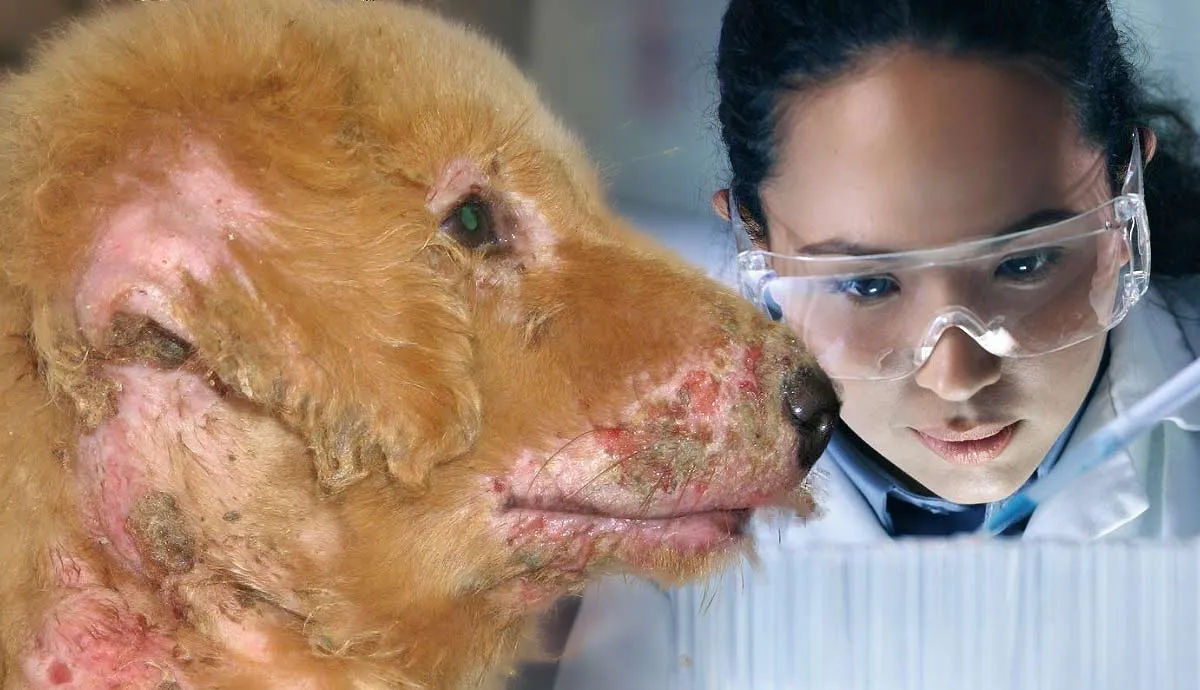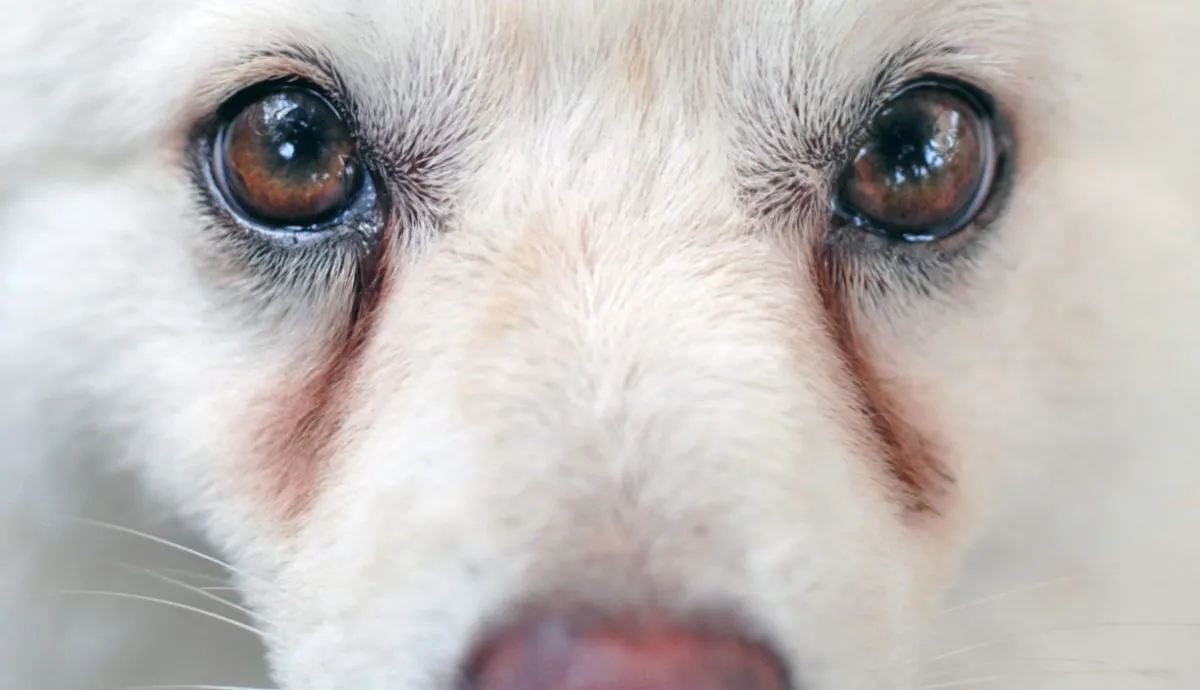Canine distemper is a contagious disease dogs can get. This disease has nothing to do with your dog’s personality or aggression. Instead, it affects your canine’s respiratory, gastrointestinal, and nervous systems.
Canine distemper can affect dogs of any age, but puppies younger than four months old are at the most risk of contracting this deadly disease. Read on to learn about the symptoms, diagnosis, treatment, and prevention of canine distemper.
Symptoms of Canine Distemper
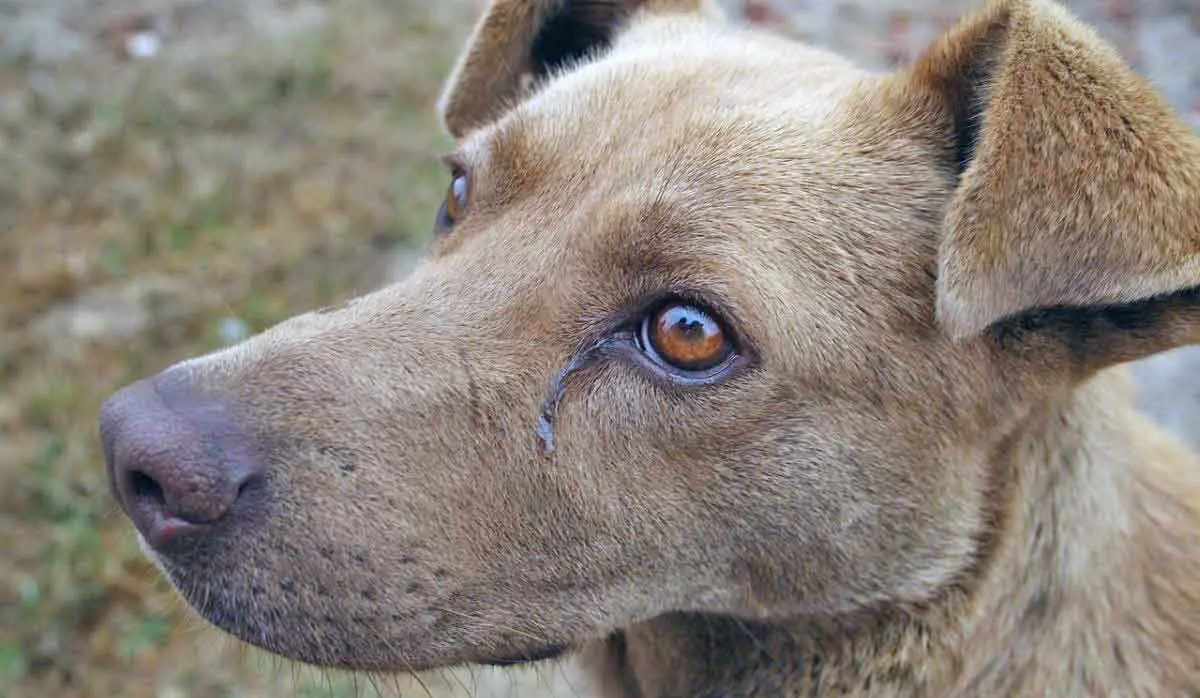
Canine distemper virus (CDV) is a highly contagious viral disease in dogs. It affects all dog breeds at any age. The disease spreads through contact––usually through coughing and sneezing.
This disease is incurable. Dogs who contract distemper often die. The disease affects many organs within the body. CDV is recognizable because it causes gastrointestinal, respiratory, and neurological symptoms simultaneously.
According to the American Veterinary Medical Association, here is a list of common symptoms for dogs with canine distemper:
- Yellow discharge from the eyes and nose
- Fever
- Coughing
- Lethargy
- Vomiting
- Diarrhea
- Reduced appetite
- Muscle spams
- Lack of coordination
- Head tilt
- Walking in circles
- Convulsions
- Seizures
- Partial or complete paralysis
Many illnesses cause some of these symptoms, but if you are seeing symptoms that span across different systems of the body, it is important to get your dog checked by a veterinarian.
How Does Canine Distemper Progress?

The illness usually goes through two stages. The first stage includes respiratory and gastrointestinal symptoms that may lead to secondary illnesses, such as pneumonia or dehydration. Dogs may also develop hyperkeratosis, which is a hardening of the paw pads that can cause great discomfort.
If a dog survives the first stage, the second stage has neurological symptoms, such as convulsions and seizures. Many times, dogs who develop these symptoms often have long-lasting damage to their nervous system. The disease is often fatal, or the lasting damage may result in a poor quality of life.
According to the American Kennel Club (AKC), the disease can spread through direct contact with infected animals, airborne exposure, and even through a mother dog’s placenta.
How Vets Diagnose Canine Distemper
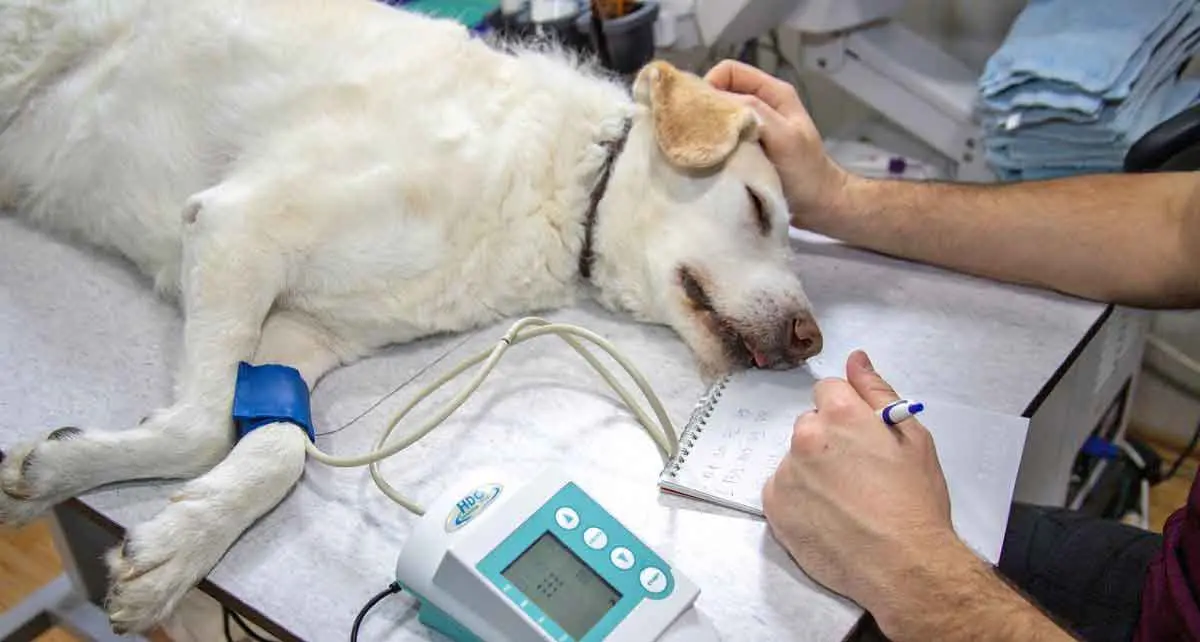
Once you take your sick dog to the vet, they will evaluate your dog’s symptoms to determine whether your dog has canine distemper. It may be difficult for your vet to distinguish between this illness and many others that present with similar symptoms at first.
They will ask you about your dog’s vaccination status. They will also ask you if your dog has been in contact with other dogs who have been ill. Then, they will conduct a polymerase chain reaction (PCR) test. This detects whether there is the presence of the CDV’s genetic material in your dog’s body.
The vet may also take your dog’s blood and check your pet’s anti-body levels.
Finally, the vet may also order an X-ray to check the dog’s organs and investigate whether any secondary illnesses may be causing the symptoms.
Can Vets Treat Canine Distemper?

Once your vet confirms your dog has canine distemper, there is no cure for the illness. Experts do not recommend antivirals, so most of the treatment revolves around managing the symptoms.
Vets may prescribe antibiotics to help prevent secondary infections. They may also give your dog IV fluids, especially if they are dehydrated from vomiting and diarrhea. You may need to give your dog anti-nausea or anti-seizure medications, and changes in diet may help to relieve the symptoms.
Some dogs, however, do not recover from canine distemper. A dog’s immune response will determine whether or not your dog will recover. For some cases of CDV, humane euthanasia may be necessary.
If your dog recovers, he is likely immune to the virus from now on. However, some dogs may experience neurologic symptoms weeks or years later as a result of the illness.
How to Prevent Canine Distemper

The best way to prevent your dog from catching and spreading the canine distemper virus is by getting them vaccinated. Dogs as young as six to eight weeks of age can begin CDV vaccines. After the initial dose, they will need to get another dose every three to four weeks until they are 16 to 20 weeks old.
Then, you should take them the next year for a booster and then every three years following that. Dogs from shelters or who are part of a high-risk population (such as street dogs) may need to have more frequent boosters.
Owners with puppies too young to vaccinate should keep their puppies away from high-risk areas. Dog parks and other places where lots of dogs linger may be risky.

If you have one dog that contracts the illness, it is important to isolate that dog from others in your home to prevent the spread of the disease. Be sure to use disinfectants and gloves when you clean the space. The virus can travel on your shoes or clothing, as well.
Dogs continue to shed the virus for about one month after they recover. Some dogs with continued neurological symptoms may continue to shed the virus for up to eight months. The virus may spread through urine, feces, saliva, and other bodily secretions throughout this period.
Canine Distemper Is Serious but Preventable
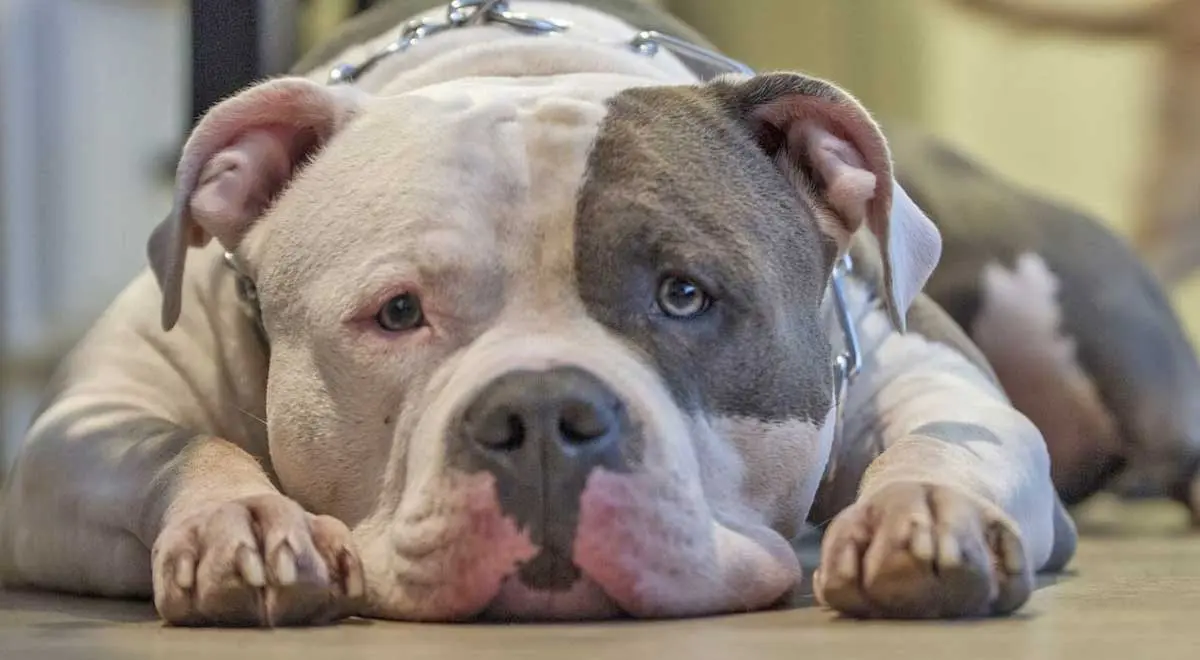
Canine distemper virus is a serious illness that affects young puppies and unvaccinated dogs of all ages. It’s not as common as kennel cough, but it still requires immediate veterinary care.
This disease affects the respiratory, gastrointestinal, and neurologic systems of your dog. It is often a deadly disease, but even recovered dogs may suffer long-term effects. The best way to keep your dog from contracting this illness is to get him regularly vaccinated against CDV. If your dog is too young to be vaccinated, keep them isolated from other dogs until they can be.


